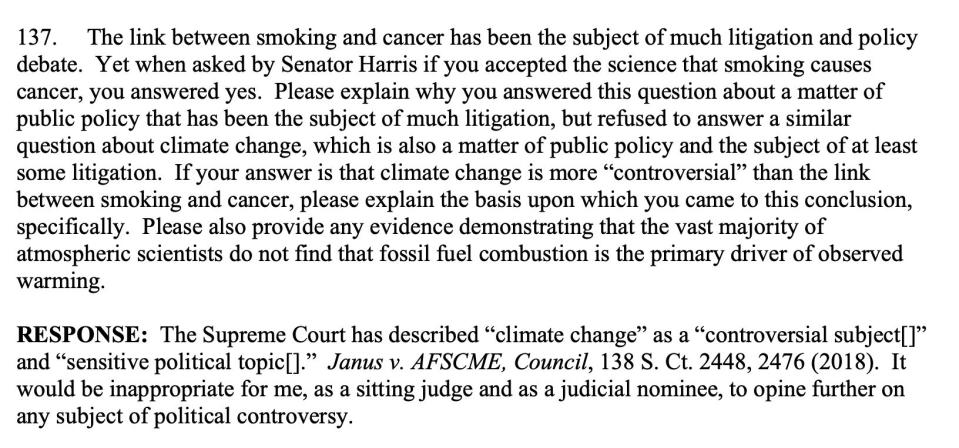Is The Sky Blue? Amy Coney Barrett Still Won't Answer Really Obvious Questions.
Supreme Court nominees don’t like to answer questions about how they feel about one issue or another. They want to at least appear impartial and convey that they will decide cases based entirely on the law. But Amy Coney Barrett’s stunning refusal in her Senate confirmation hearing to answer basic questions ― ones that have obvious, fact-based answers ― is also on display in her written responses to senators’ follow-up questions.
Late Tuesday, the Senate Judiciary Committee released all 184 pages of Barrett’s responses to follow-up questions from senators on the panel. Again and again, President Donald Trump’s Supreme Court pick dodged the same basic questions that don’t require a biased opinion to answer, just an acceptance of science and data.
Barrett, who is currently a U.S. appeals court judge, raised eyebrows in her hearing when she refused to say whether climate change is real. Pressed on it by Sen. Sheldon Whitehouse (D-R.I.) in his follow-up questions, Barrett said the Supreme Court has said climate change is “controversial” so she can’t discuss it.

The science behind climate change is not controversial. As spelled out on NASA’s climate website for children, climate change is very real, and the primary cause of it is greenhouse gas emissions from cars, power plants and other human-made sources. A group of 1,300 scientific experts has concluded that a more than 95% probability exists that human activities over the past 50 years have contributed to the planet’s warming.
Barrett also refused to say in her follow-up answers whether voter fraud is a widespread problem in U.S. elections (it is not) and whether restrictive voter ID laws suppress the vote in poor and minority communities (they do). Both questions are easy to answer and backed by substantial evidence. But Barrett said she wouldn’t answer them because it’s possible those issues could be the subject of litigation that comes before her as a judge ― a standard...


